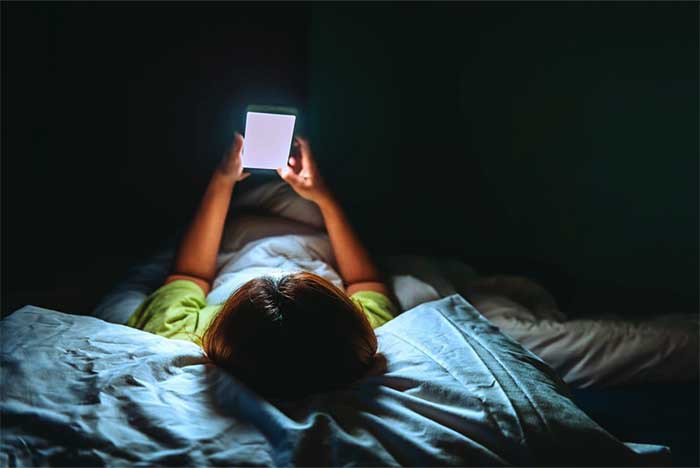
By Joseph Bernard A. Marzan
Reducing screen time may ease mental health concerns, an expert advised on Friday, April 19.
Psychiatrist Evony Allisa-Deveza explained to Daily Guardian on Air that social media behaviors are influenced by decreased cognitive and increased emotional brain functions.
“The pre-central cortex, or the part of the brain [on] cognitive functions, where [its] analytic centers are located, shrinks especially when exposed to gadgets or televisions, or screen time in general. Our emotional center, the amygdala, that’s the part that increases in size,” Deveza explained.
“It means that there are emotions, without the proper regulation, and the decision-making [becomes] very poor. That’s why social media is a very strong factor to the development of mental illness,” she added.
Deveza also pointed out the diminished or “blurring” the concept of delayed gratification due to instant reactions on social media, causing stress across all ages.
“At this time, it’s easy to get reactions. When you post, you get a reaction, unlike before, when you have to wait for the reaction of your family. Now, there has to be instant gratification. It brings stress not only to children and youth, but also to adults,” she described.
This instant gratification and the public’s emerging awareness of mental health affects decision-making, including coping mechanisms for mental health issues.
“Decision-making has become different now compared to before. There’s more disorganized thinking, mostly among involved individuals, whether they are patients or undiagnosed. They have a lot to encounter, and they also get invalidated by their family, since [the concept] mental health is still in its infancy,” she said.
Deveza said she wasn’t surprised by the rise in mental health issues alongside increased digital usage during the COVID-19 pandemic, which aligns with the World Health Organization’s forecast of mental health as a leading cause of morbidity by 2020.
“When the pandemic came, incidences [of mental health diseases] increased even further. Those who had depression or anxiety before the [COVID-19] pandemic had worsened symptoms or had relapsed, with their symptoms going back, and those who didn’t have symptoms or conditions before had acquired them,” she described.
“There are significant factors from the environment, [and] aside from that, the digital world, [particularly] the exposure [to] social media[.] Now, it’s possible at any age to have depression, psychosis, or anxiety. It’s not just a current trend, these mental health illnesses,” she added.
She said that aside from the typical lessening of their screen time, proper understanding by the people in their immediate environment, such as family and friends, is crucial to a person’s good mental health development.
A family’s knowledge of their member’s mental health illnesses would allow them to get proper treatment at the soonest time, and even enable them to respond without the need to seek professional help through mental health first-aid.
“It’s a crucial stage that the family knows the sufferings or struggles of their member. If they are aware, or they do see symptoms or behaviors, they could seek help from professionals to assess. There are mental health conditions where the more that these persist, or the symptoms have started to appear long before they seek help, it affects the length of time of the treatment,” she said.























